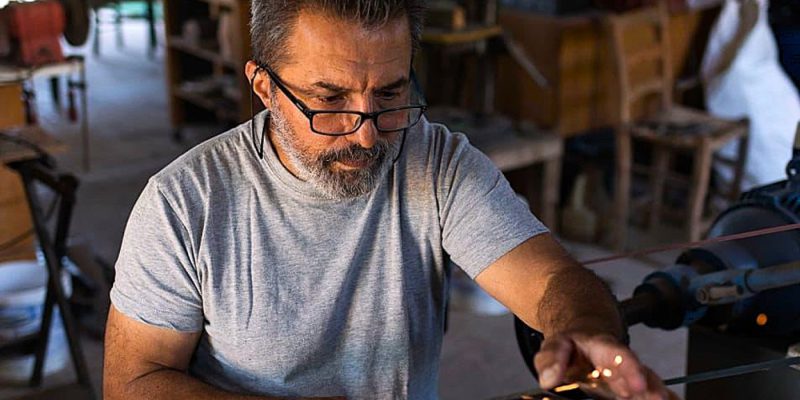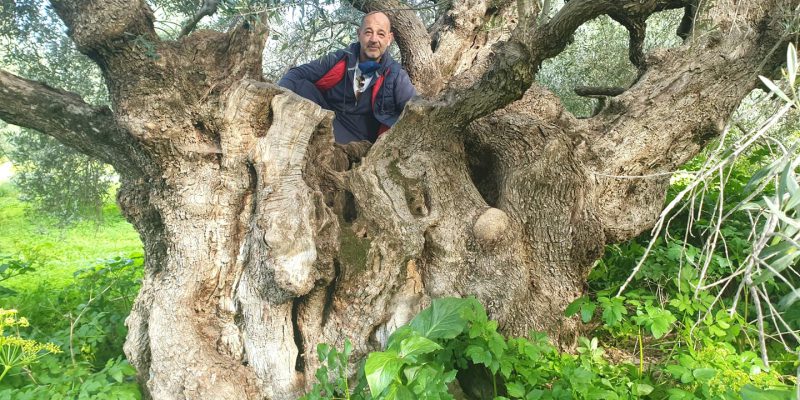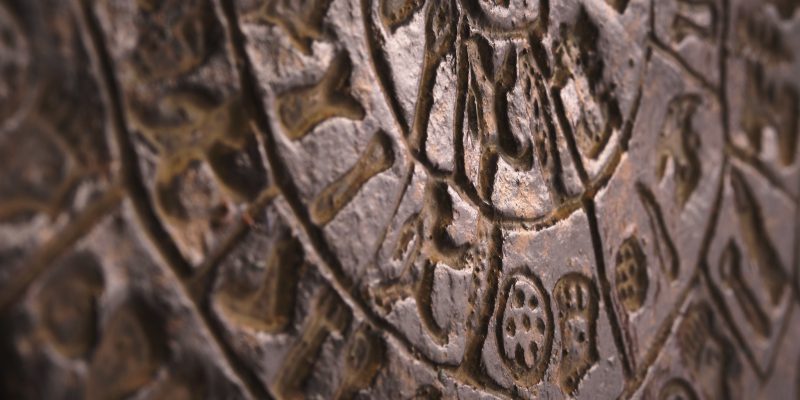The knife is the most permanent, the most immortal, the most ingenious of all man’s creations... Yevgeny Zamyatin
At just eight years old, Stauros Peterakis’s life changed forever when he wandered into Nikos Skoutridakis’s workshop. Surrounded by the hiss of white-hot steel and the sparks cascading from grinding wheels, young Stauros was captivated. His fascination with the ancient art of knifemaking began that day, though he could never have imagined how deeply it would shape his future. That day, a great passion was sparked and stoked by the ancient allure of steel. Decades later, he stands as one of the most renowned craftsmen of the Cretan knife—a title that reflects both his skill and the heritage he strives to preserve.
Sifaka Street: The Heart of Cretan Knifemaking
Tucked within the maze that is Old Chania Town, on Crete’s western edge, lies the historic neighborhood of Splantzia. There, on Sifaka Street, some of the last traditional knifemakers practice an art form that dates back centuries. The intricate process of forging these distinctive blades requires tireless effort, making it less appealing to younger generations. As skilled artisans age, the continuation of Cretan arts like knifemaking grows uncertain. Stauros Peterakis has become a symbol of these dying traditions, representing an era that is slowly fading under the pressures of modernity.
[Read more…] about Legacy of the Cretan Knife: A Master Craftsman Clings to Tradition



